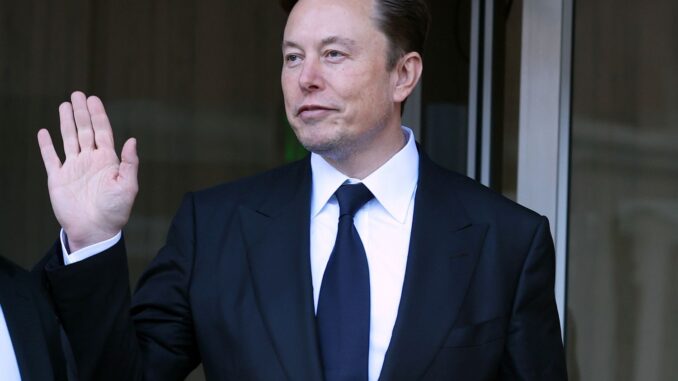
WHATEVER happened to all the foreign investments amounting to billions to be invested in Malaysia?
From the day one Prime Minister (PM) Datuk Seri Anwar Ibrahim took office, he has been giving glowing reports of foreign investments coming to Malaysia.
Going on the promises made by Anwar, foreign investors will be waiting in lines to get the opportunity to invest in Malaysia.
There is clear mismatch on what was promised by Anwar and the actual foreign investments in the country.
Electric vehicle (EV) behemoth Tesla which is owned by American billionaire Elon Musk was supposed to pour billions in investments in Southeast Asia including Malaysia.
However, it appears that Tesla has given indications that it not interested in Southeast Asia but more in China. What has Anwar to say on this?

Whatever happened to the billions in foreign investments that would have created thousands of jobs and enhanced the manufacturing and industrial capability of Malaysia.
To date, Anwar or the government has not said commented on the absence of investments from Tesla in the production of electronic vehicles or EV.
I am not sure whether other investments from foreign firms have materialised in the country.
Whether it is about foreign investments or about the strength of the ringgit against the greenback or the financial capability of the country, there is glaring gap between what Anwar says and the actual truth.
No PM of a country would rely so much on foreign direct investments (FDIs) as means to uplift the economic and financial capability of the country.
I have yet to come across statements from Anwar about beefing up local investments in the country.
Local investments from Malaysian companies might not be comparable to the huge foreign firms – but unlike the latter – the former has the long-term potential to build the industrial, manufacturing and commercial base of the country.
No country would give so much emphasis to foreign investments without acknowledging their high mobility across national boundaries.
It is not that Malaysia doesn’t need foreign investments but there should be a balance in the FDIs and domestic direct investments (DDIs).
While foreign investors are literally given a free hand in bringing in their investments without bureaucratic compliances, local firms are subject to all kinds of regulations and controls.
Local firms have to even comply with the ethnic quota set by the government and not to mention other kinds of encumbrances.
Anwar pretends to be nationalist when it comes to certain matters but on the question of foreign investments, he behaves as though he belongs to the comparator class. In other words, a behaviour devoid of national interest.
The ringgit has been sliding in relation to the US dollar for more than year. Suddenly, when the value of the US dollar dropped against the ringgit and other currencies, Anwar went ecstatic.
Essentially, it was not that the ringgit went up against the US dollar but the latter’s value plummeted against currencies including the ringgit.
Local Malaysian companies that were built from scratch despite the political and ethnic huddles seem not appreciated.
While foreign investors are given the red carpet, local Malaysian firms seem to compete and survive in an environment of controls and bureaucratic red tapes.
How can Malaysia develop as country with a powerful industrial and commercial infrastructure if reliance is placed on the footloose foreign firms.
Anwar need not be a nationalist to realise the long-term significance of developing and sustaining local Malaysian industrial and commercial base.
Too much reliance on the foreign investors is not good for the country. Could China and India have developed to their present status if there had just relied on foreign investments?
